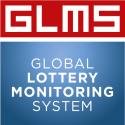BANGKOK (June 10, 2024) — The government’s plan to launch a lottery scheme for pensioners is a smart move, but the proof of the pudding is in the eating. Will it be able to boost senior citizens’ savings as they claim?
The new lottery scheme would be unlike other lottery schemes available on the market, as the tickets for this one will be made available to members of the National Savings Fund (NSF) and self-employed individuals covered by Section 40 of the Social Security Fund.
These individuals will be allowed to purchase a maximum of 3,000 baht’s worth of tickets — to be sold at 50 baht each — each month. The winners will be announced every Friday at 5pm, with five one-million-baht prizes up for grabs each week, along with a 1,000-baht payout for 10,000 other lucky ticket holders.
While winners will be allowed to claim the prizes immediately, they will only be allowed to claim back the money they have spent on the tickets until they reach the age of 60. Until then, the money spent will be managed by the NSF.
The objective of this policy is to increase the number of NSF subscribers from a mere three million people to around 16-17 million. Those who back the seniors’ lottery say the scheme is likely to succeed, as it taps into Thai people’s love of gambling.
The concern about Thai seniors’ lack of savings is a valid one — a study by the Stock Exchange of Thailand found that almost half of the nation’s retirees have little to no savings in the bank.
Among those with savings, about 41% have less than 50,000 baht saved, 21% have between 50,000-100,000 baht, about 25% have 100,000-400,000 baht in the bank, while only 12% have over 400,000 baht saved up.
Meanwhile, another study found that a Thai retiree needs around 3 million baht in savings to maintain a comfortable life.
While the seniors’ lottery may partially address the issue, it won’t be able to boost the nation’s savings on its own. The government will still need to figure out other ways to get its citizens to save.
Furthermore, while the seniors’ lottery creates an incentive to save for retirement, it may also cause social problems down the road, especially since most individuals targeted by the scheme are low-income workers who are not covered by other pension schemes.
Sure, ticket purchases will be capped at 3,000 baht per person per month, but what would stop an individual from borrowing and using other people’s names to purchase the tickets?
The fact the draw would be announced every Friday, instead of twice a month like the existing government lottery, could also further stimulate risk-taking behaviour.
Illegal underground-lottery sellers exploit the government lottery’s draw schedule to conduct their business. If the seniors’ lottery were to start drawing prizes every Friday, there’s a risk that underground lotteries would further expand.
As such, the government needs to implement measures to help mitigate the negative repercussions of this initiative. Above all, it cannot rely on the seniors’ lottery scheme to address the root cause of Thailand’s problem, that is, its rapidly ageing society.
The government must come up with a more comprehensive measure to solve the nation’s savings problems at their roots.
SOURCE: Bangkokpost.



























